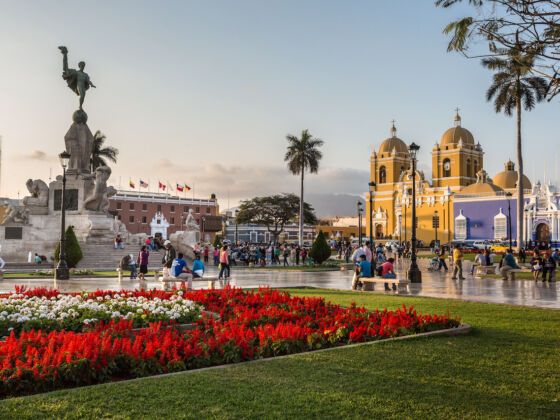A vendor passes by the open sliding glass door of the café, pushing his bicycle cart with his friend’s assistance.
“Fresa, naranja, plátano, naranja, plátano, fresa!” muffledly resounds from his electric bullhorn.
As I watch the cart slowly creak by, the pungent odor of cleaning products of bleach and chemicals masked by an imitation lavender scent attacks my nostrils and makes my eyes water. My gaze retracts from the outside world to the busboy next to my table, pushing floor cleaner around with a broom wrapped in a towel.
